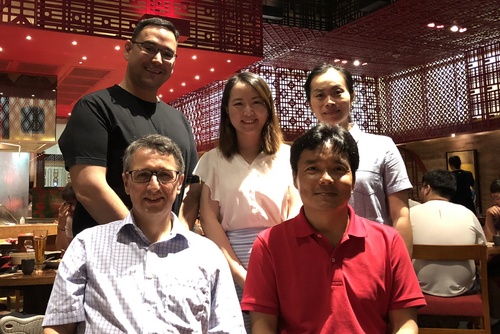 Prof Todd Sandel (1st from left) and his students
Prof Todd Sandel (1st from left) and his students
Prof Todd Sandel, along with his doctoral students, Ou Chuyue, Dorji Wangchuk, Ju Bei, and Miguel Duque, from the Department of Communication, Faculty of Social Sciences, University of Macau (UM), received a Top Paper Award at the 68th Annual Convention of the International Communication Association (ICA) held in Prague, Czech Republic. The event attracted approximately 3,300 scholars from around the world, including the United States, the United Kingdom, China, and Australia.
Titled ‘Unpacking and Describing Interaction on Chinese WeChat: A Methodological Approach’, the paper explores the affordances of WeChat and Chinese as contexts for analysing new forms of interactional data. It demonstrates how WeChat as a platform, and written Chinese—including both vernacular Cantonese and standard Chinese—as a script, afford novel and creative forms of communication. The paper paves the way for examining new forms of data in ways not previously done by any scholars. The paper was competitively reviewed by international scholars and experts, and it was granted this award by the Language and Social Interaction Division of the ICA. The paper has also been accepted for publication in the prestigious and highly ranked Journal of Pragmatics (SSCI).
The ICA is an academic association for scholars interested in the study, teaching, and application of all aspects of human and mediated communication. Established more than 50 years ago as a small association of US researchers, it is now an international association with more than 4,500 members in 80 countries.


